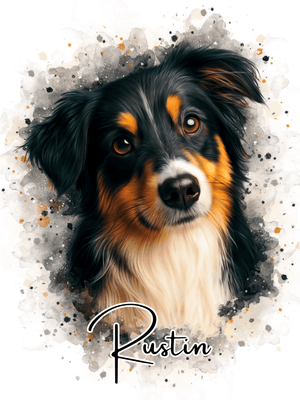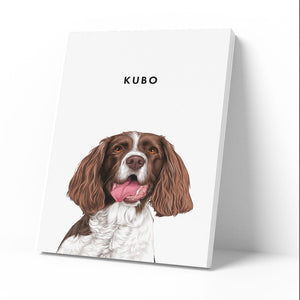I Think My Cat is Constipated: What Should I Do?
Constipation is a common condition in cats. Whenever this happens, do not panic and help your cat with simple home treatments. If it comes to a point where your cat exhibits more severe health issues, bring it to the vet immediately. This article will help you determine whether your cat's constipation is a severe problem that needs the vet's attention.
How do I know if my cat is constipated?
A typical cat will defecate from 24-36 hours, so if your cat is pooping less frequently and has difficulty, your cat might be constipated.
Dry and hard stools
A normal poop looks rich and brown, and it contains enough moisture so the litter will stick into it. When you see that the stool is dryer than usual, your cat is constipated. Usually, these hard-looking stools are found outside the litter box because when your cat finds it hard to defecate, it will leave the litter box before it has finished its business.
Crying or straining out in pain in the litter box
When your cat is crying out in pain whenever it defecates, it is a hard sight to see. Observe whether it goes on and off the litter box several times before using it as well. A urinary tract infection can cause this alarming sign of discomfort. If this is the case, bring your cat to the vet for further examination.
Are there other signs that my cat is constipated?
- nausea
- lesser food intake
- frequent vomiting
- hiding
- stiff walking
- lethargy
- peeing frequently
- decreased or increased water intake
- weight and muscle loss
- small, dry stools covered in blood or mucous
- abdominal discomfort
- lack of grooming
Once you see these symptoms manifest, consult your vet so he can provide appropriate meds and treatment.
So, what causes constipation in my cat?
It is important to recognize the symptoms and cause of cat constipation for you to eradicate it quickly. The most common cause is dehydration, but sometimes, it stems from other issues as well. Mild dehydration can be treated with diet and lifestyle modifications.
The complications arise when your cat is anxious and stressed, which causes its intestines not to function normally. Other causes can be inflammatory bowel disease, allergies, nerve problems and sometimes cancer.
Here are some reasons why your cat has trouble pooping:
- dry and low fiber diet
- dehydration
- excessive grooming leading to hairballs being vomitted
- enlarged prostate gland
- abnormal colon shape
- obesity
- neurological disorder
- intestinal problems
- ingestion of foreign objects such as cloth, strings, etc.
- tangled hair on the buttocks
Can I treat my constipated cat?
When you sense that your cat's constipation is mild, resolve the problem at home. However, when you feel that it would escalate into something more serious, don't hesitate to bring your cat to the vet. Here are some home remedies while waiting for your vet appointment:
Increase Hydration
Keep your cat hydrated by putting water bowls in different areas of your home so your cat will be reminded to drink frequently. Combine this with a wet food diet to make sure that your cat's water intake increases.
Regular Exercise
Obesity is one of the culprits of cat constipation. Introducing exercise to your cat's everyday routine will get its body moving, including an increased function in its intestines. Play with your cat every once in a while and use toys and other stimulating stuff to make the experience morre enjoyable.
If these home remedies won't work, then you need to discuss with your vet the proper treatment for your cat's constipation. This condition may have different causes, so it would be better to treat it as soon as possible to prevent permanent damage to your pet's colon. Cat fluids or enema are usually given to relieve the pain on your cat's stomach instantly. However, giving cat fluids is a vet's job, so do not attempt to do this yourself.
Your vet will help you identify the root cause of your cat's constipation so you would be able to prevent it from happening in the future.
Here are some of the possible meds and treatments your vet would recommend:
- stool softener
- laxative
- Enema (professionally administered, cannot be done at home. Some Enema's sold in the market contains toxic chemicals, so make sure that you trust your vet with this)
- medication to help the large intestine function normally
- surgery for bowel obstructions
- high-fiber diet as prescribed by your vet
- increase in water intake
- regular exercise
In most cases, cat constipation can be cured with appropriate treatments. Monitor your cat's daily water consumption and the characteristics of its poop. Introduce more exercise and provide a balanced diet as well. Remember, prevention is always better than cure. With doing these tips and tricks, your cat will live a long and happy life.




